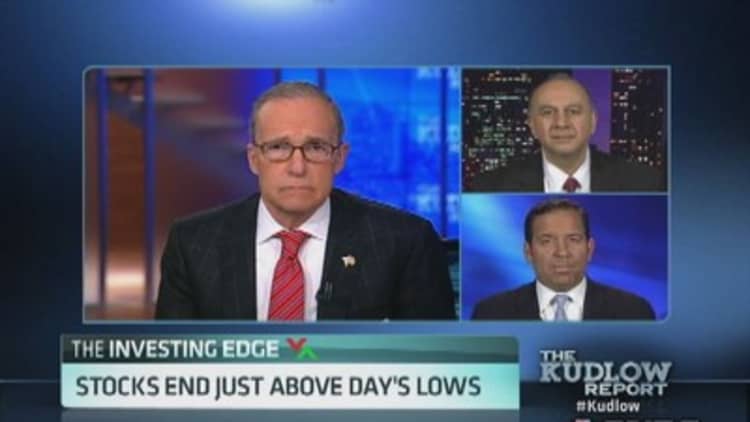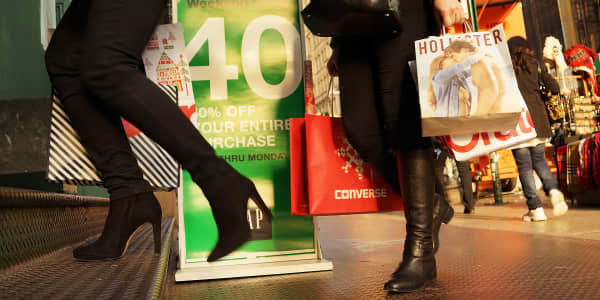Dissecting consumer behavior has already proven to be a difficult task this holiday, and it just got even more confusing.
Analytics firm ShopperTrak on Tuesday released Black Friday weekend results that showed a sales increase of 1 percent, and a traffic decline of 4 percent. The figures were a complete reversal from data released by the National Retail Federation over the weekend, which said that holiday spending fell nearly 3 percent, but the number of shoppers rose about 1 percent.
What's behind the discrepancy?
(Read more: )
The differences, according to ShopperTrak founder Bill Martin, lie in the methodology. While NRF's Kathy Grannis cautioned against comparing the two surveys, below are some of the key differences in how the firms compile the data:
- The National Retail Federation data include both online and in-store shoppers but do not separate the two; ShopperTrak only accounts for brick-and-mortar traffic and sales.
- The National Retail Federation polled 4,464 consumers via Prosper Insights to ask them about their shopping behavior and spending, which it said has a margin of error of plus or minus 1.5 percent; ShopperTrak has counting devices placed in more than 50,000 brick-and-mortar stores across the U.S. that count shoppers entering stores. It gets sales data from the individual retailers' sales logs.
- NRF includes items that are sold at the necessity level, including gas and grocery store goods; ShopperTrak focuses more on the disposable income level, such as general merchandise and furniture.
(Read more: Winners and losers of Black Friday's megadeals)
Despite contrasting Black Friday data, the two groups do agree on some key points this holiday.

Both noted an increasing number of shoppers are turning to the Web for their holiday shopping, which Martin said accounted for the drop in this past weekend's traffic. ComScore separately backed up this conclusion, reporting that Thanksgiving and Black Friday Web sales increased by about 17 percent.
Both groups also found that shoppers responded positively to shopping on Thanksgiving, with the NRF reporting a 26.7 percent increase in Turkey Day shoppers. ShopperTrak attributed its 2.8 percent traffic increase on Thursday and Friday to a boost from Thanksgiving Day, noting that traffic fell more than 11 percent on Black Friday.
(Read more: Cyber Monday to shatter records)
The two have also said that early promotions led shoppers to make purchases ahead of Black Friday weekend, and the deals will likely continue as the season progresses.
"In the current environment the customers expect promotions, and absent promotions they're not really spending," said Matt Shay, NRF's president and CEO.
Notably, both groups also predict that overall sales will be higher this season. The NRF said it stands by its forecast that sales will rise about 3.9 percent this holiday, while ShopperTrak said they will register a 2.4 percent gain. Martin pointed out that while Black Friday weekend is critical to the season's sales, the majority of purchases tend to be made in December.
Stuart Hoffman, senior vice president and chief economist at The PNC Financial Services Group, said in a note that the data sets don't show the full picture on holiday spending because they miss some key purchases made ahead of the holiday weekend.
(Read more: Pssst, Santa! This is what kids want this holiday)
Specifically, Hoffman said, the numbers don't reflect sales of new Microsoft Xbox One or Sony PlayStation 4 gaming consoles, which were released prior to Black Friday and reportedly sold 1 million consoles in their first day. He said the absence of auto sales from these readings also deflate the results of what people are really spending right now.
"Once again, reports of the American consumers' demise are greatly exaggerated," he wrote.
—By CNBC's Krystina Gustafson. Follow her on Twitter @KrystinaGustafs. CNBC's Steve Liesman contributed to this report.





